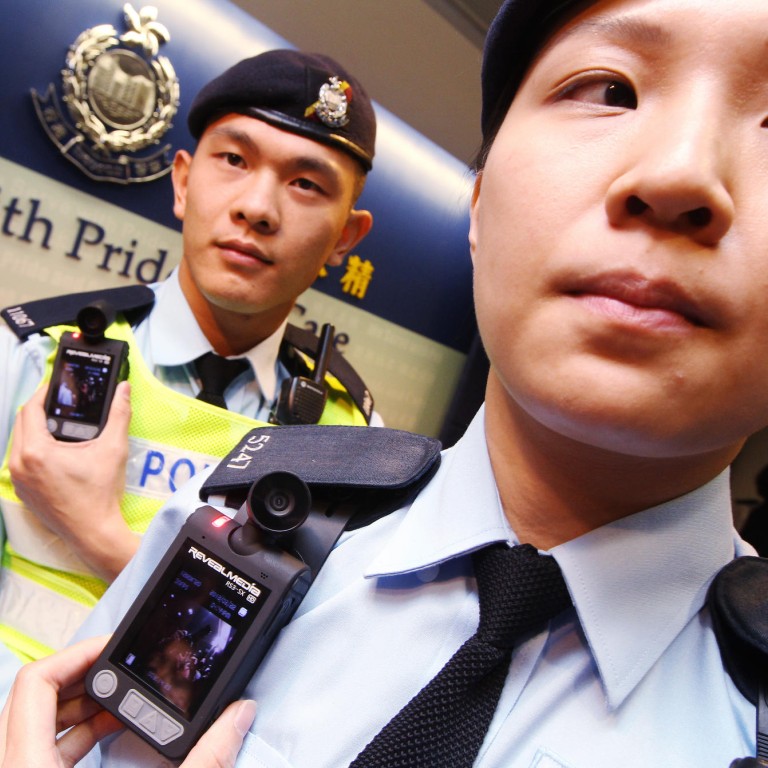
Police to don surveillance cameras for duty next month
Surveillance gadgets will be used in six-month trial beginning next month and blocking the lenses may constitute a criminal offence
Police will soon begin testing tiny video cameras clipped to their uniforms, and people who block the lenses may be committing the crime of obstructing officers trying to do their duty, the police said yesterday.
Senior superintendent of support Tse Sau-kong issued the warning at a press conference as he announced the six-month trial for 50 of the surveillance gadgets - about the size of cigarette packets - beginning on March 11.
When asked if blocking the lens would constitute a criminal offence, Tse said: "If a person unintentionally blocks it, it is fine … but if a police officer has cautioned him [that footage is being filmed for evidence], he may commit the offence of obstructing a police officer in the execution of his duty."
James To Kun-sun, a Democratic Party lawmaker and vice-chairman of the Legislative Council's security panel, responded to this by saying: "If a police officer falsely claims that he is shooting the footage for garnering evidence, then he is abusing his power."
Officers should not film the public unless they have a justifiable reason, as this was an intrusion of privacy, To said.
Icarus Wong Ho-yin, the Civil Human Rights Front's vice-convenor, said he was worried that innocent people - who block the camera fearing intrusion of privacy - might be charged.
"If a police officer turns it on for no good reason, and a person who doesn't want to be filmed reaches out his hand to block the camera, will that be considered committing the offence?"
Senior chief superintendent of support Patrick Hodson said officers would caution people before filming them, or inform them "as soon as practicable". Guidelines and training would be provided for using the cameras.
During the trial, the cameras would be used in situations involving confrontation and breaches of the peace, police said.
Tse said video footage that was not used for investigation or prosecution would be destroyed 31 days after being taken. If used as evidence in criminal proceedings, it would be destroyed after the cases were done. But senior superintendents may retain footage for more than 31 days.
If the police want to suppress a high-profile activist for a while, they can easily pick up [a video clip] from the archive to lay charges against him
Wong was worried the police might use the cameras to build up a database on social activists for "political prosecutions".
"The so-called expiry date is to mislead the public because a senior superintendent has authority to prolong the storage of the clips," he said. "If the police want to suppress a high-profile activist for a while, they can easily pick up [a video clip] from the archive to lay charges against him."
The cameras will be worn by emergency units in New Territories North and Kowloon West, and the Hong Kong Island tactical unit.
